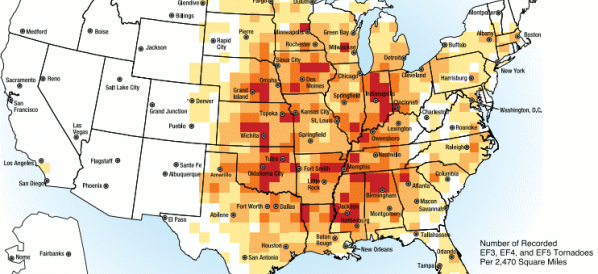 10 Terms
10 TermsHome > Terms > English (EN) > ice hockey
ice hockey
Sport developed in Canada during the nineteenth century The name of its most prestigious prize, the Stanley Cup, derives from the governor-general who donated the bowl to the hockey league. Hockey spread below the border in the early twentieth century; the National Hockey League, built primarily around Canadian teams, was formed in 1917. Interest in the United States grew with the bringing of franchises to Boston, MA, New York City, Chicago, IL, Detroit and Pittsburgh, and then in the 1970s to Philadelphia, PA and Hartford among other cities.
Since 1980, the sport’s base has shifted to the United States, a development symbolized in the trading of Wayne Gretzky, “the Great One,” from the Edmonton Oilers to the Los Angeles, CA Kings in 1988. Two years later the NHL created its first expansion team in Florida. Once dominated by Canadian teams, at the end of the 1996–7 season the NHL had twenty-six teams, only six of which were in Canada.
Part of this growth in the US has been owing to the sport’s profitability (until recent fears that it may have overextended itself). As in other sports, hockey teams are owned by corporate giants such as Disney and by major mass media and cable companies.
These teams hold cities to ransom, bargaining for new leases on their arenas or for more funding from taxpayer dollars, threatening to move if their demands are not met. They are able to do so because city mayors and governors are constantly battling to win expansion teams or attract a team willing to relocate. Hockey, associated with white suburbanites who flock to the city for every game, brings in revenue. The game has never attempted to appeal to inner-city populations. There have been almost no African Americans in the league, and there are very few black and minority fans in the bleachers.
Another significant development of recent years has been the internationalization of NHL players. The game had long been an Olympic sport and northern European teams did very well (the Olympics were one reason for hockey’s hold in colleges, since until the 1990s American Olympians were generally drawn from college ranks). Some of these athletes, beginning with the Swedes in the 1970s, came to the United States drawn by the high salaries. With the end of the Cold War, a large number of Russians and Czechs made use of their new freedom to emigrate. During the 1995–6 season, of the 640 players in the league, 389 were Canadian, only 108 were American, while there were 42 Russians, 34 Swedes and 26 Czechs.
This has resulted in a change in the way the game is played. The Canadian game was noted for its extremely physical aspect, Gretzky’s agility and grace being the exception.
Players wear padding and helmets, not only to protect themselves from the inevitable contact (particularly since the game is played with a stick, and the hard rubber puck can travel at high speeds), but also because the game is marked by brawling, believed to stimulate fan interest. The joke: “I went to a boxing bout and a hockey game broke out,” is often repeated as nightly sportscasts feature fist fights between players which are calmly observed by referees who have no power to intervene. When the Philadelphia Flyers’ Broad Street Bullies won in 1974 and 1975, led by Bobby Clarke and Bernie Parent, many assumed that physical play would always win championships.
However, European players have tended to be quicker skaters and more skillful with the stick, able to embarrass teams that rely on the body check. This has happened to Bobby Clarke’s handpicked Flyers’ “Legion of Doom,” led by Eric Lindros, which has failed to win a Stanley Cup and has consistently been outperformed by playoff opponents.
Women have begun to play the game in larger numbers, in part inspired by the success of the US hockey team in the new-medal sport in the 1998 Winter Olympics. The women’s game emphasizes skill over brute force (stricter penalties are given for infringements), though the intense rivalry between the Canadian and American women led to an Olympic showdown noted for the frequency of its body checking.
The spread of the game around the United States has been facilitated by the development of in-line skating, enabling people to play a version of hockey on parking lots and playgrounds around the country This in turn has led to the emergence of a new semi-professional league of roller hockey fast growing among the nation’s children, serving the dual function of a sport to train youngsters who want to make their way towards NHL, and as a new commercial sport in its own right.
Hockey has been used in mass media—both news and fiction—to explore male destructiveness (Slap Shot, 1977). The growing appeal (and changing image) of hockey in the 1990s can be seen in its Disneyfication in Mighty Ducks (1992) and its sequel, as well as Disney’s acquisition of an Anaheim franchise with the same name.
- Part of Speech: noun
- Synonym(s):
- Blossary:
- Industry/Domain: Culture
- Category: American culture
- Company: Routledge
- Product:
- Acronym-Abbreviation:
Other Languages:
Member comments
Terms in the News
Billy Morgan
Sports; Snowboarding
The British snowboarder Billy Morgan has landed the sport’s first ever 1800 quadruple cork. The rider, who represented Great Britain in the 2014 Winter Olympics in Sochi, was in Livigno, Italy, when he achieved the man-oeuvre. It involves flipping four times, while body also spins with five complete rotations on a sideways or downward-facing axis. The trick ...
Marzieh Afkham
Broadcasting & receiving; News
Marzieh Afkham, who is the country’s first foreign ministry spokeswoman, will head a mission in east Asia, the state news agency reported. It is not clear to which country she will be posted as her appointment has yet to be announced officially. Afkham will only be the second female ambassador Iran has had. Under the last shah’s rule, Mehrangiz Dolatshahi, a ...
Weekly Packet
Language; Online services; Slang; Internet
Weekly Packet or "Paquete Semanal" as it is known in Cuba is a term used by Cubans to describe the information that is gathered from the internet outside of Cuba and saved onto hard drives to be transported into Cuba itself. Weekly Packets are then sold to Cuban's without internet access, allowing them to obtain information just days - and sometimes hours - after it ...
Asian Infrastructure Investment Bank (AIIB)
Banking; Investment banking
The Asian Infrastructure Investment Bank (AIIB) is an international financial institution established to address the need in Asia for infrastructure development. According to the Asian Development Bank, Asia needs $800 billion each year for roads, ports, power plants or other infrastructure projects before 2020. Originally proposed by China in 2013, a signing ...
Spartan
Online services; Internet
Spartan is the codename given to the new Microsoft Windows 10 browser that will replace Microsoft Windows Internet Explorer. The new browser will be built from the ground up and disregard any code from the IE platform. It has a new rendering engine that is built to be compatible with how the web is written today. The name Spartan is named after the ...
Featured Terms
Tornado alley
Tornado Alley is a colloquial term for the area of the United States where tornadoes are most frequent. Although the boundaries of Tornado Alley are ...
Contributor
Featured blossaries
dejanak
0
Terms
9
Blossaries
1
Followers
10 Most Famous Streets in the World
 10 Terms
10 TermsBrowers Terms By Category
- General architecture(562)
- Bridges(147)
- Castles(114)
- Landscape design(94)
- Architecture contemporaine(73)
- Skyscrapers(32)
Architecture(1050) Terms
- Body language(129)
- Corporate communications(66)
- Oral communication(29)
- Technical writing(13)
- Postal communication(8)
- Written communication(6)
Communication(251) Terms
- Software engineering(1411)
- Productivity software(925)
- Unicode standard(481)
- Workstations(445)
- Computer hardware(191)
- Desktop PC(183)
Computer(4168) Terms
- Christmas(52)
- Easter(33)
- Spring festival(22)
- Thanksgiving(15)
- Spanish festivals(11)
- Halloween(3)




